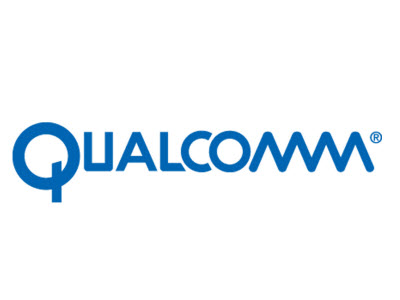Broadcom Makes A $130 Billion Bid For Qualcomm
Broadcom offered Qualcomm investors $70 per share, or roughly $130 billion, for their stakes in the company. That's a 28% premium over Qualcomm's share price on November 2—the day before reports of Broadcom's interest in acquiring the company raised the price—and is 33% higher than 30-day volume-weighted average share price. Qualcomm said it received and will consider the "non-binding, unsolicited proposal."
In a press release, Broadcom said it wants to acquire Qualcomm because doing so would "position the combined company as a global communications leader with an impressive portfolio of technologies and products." Qualcomm's near-ubiquity in the mobile market appears to be of particular interest; Broadcom apparently wants to sell the chips that power everything from Internet of Things (IoT) devices to smartphones.
Broadcom president and CEO Hock Tan said:
"This complementary transaction will position the combined company as a global communications leader with an impressive portfolio of technologies and products. We would not make this offer if we were not confident that our common global customers would embrace the proposed combination. With greater scale and broader product diversification, the combined company will be positioned to deliver more advanced semiconductor solutions for our global customers and drive enhanced stockholder value."
There's likely another reason for Broadcom's offer: It smelled blood in the water. Qualcomm's business practices have come under increasing scrutiny in recent months, with the likes of Apple and Intel accusing it of being anti-competitive. The Federal Trade Commission (FTC) also launched an investigation after it said Qualcomm used its clout to force companies into "onerous and anticompetitive supply and licensing terms."
The fight with Apple has been particularly noteworthy. Both companies have gone back and forth with lawsuits and counter-suits and tattling about each other to regulators. Apple's filed $1 billion and 1 billion yuan lawsuits in the U.S. and China, respectively, and is thought to have inspired the FTC's investigation. Qualcomm also accused the company of telling manufacturers to break their contracts and of damaging its profits.
Apple isn't the only one going after its opponent's wallet. In July, Qualcomm asked regulators to halt the import and sale of iPhones that don't use its baseband processors, and that complaint led the International Trade Commission (ITC) to say in August that it would investigate allegations that Apple infringed on Qualcomm patents. It's clear that neither Apple nor Qualcomm plan to let the other emerge from this dispute unscathed.
Get Tom's Hardware's best news and in-depth reviews, straight to your inbox.
Combine the fear a fight with Apple could inspire in Qualcomm shareholders with the company's recent advancements in VR, a renewed attempt to make Windows 10 on ARM work, and the stranglehold it has on the mobile market, and it's no wonder Broadcom thinks now is the time to make a bid for the company. Qualcomm seems keen on remaining independent, however, with the company saying in a press release:
The Qualcomm Board of Directors, in consultation with its financial and legal advisors, will assess the proposal in order to pursue the course of action that is in the best interests of Qualcomm shareholders. Qualcomm will have no further comment until its Board of Directors has completed its review.

Nathaniel Mott is a freelance news and features writer for Tom's Hardware US, covering breaking news, security, and the silliest aspects of the tech industry.
-
-Fran- Hot damn!Reply
If you can't fight them, just burn money to acquire them!
This is quite the big news xD
I wonder how this is not making Qualcomm a defacto monopoly? Is Intel being considered another modem provider alongside Motorolla?
Cheers! -
zodiacfml Why burn cash with little benefit. Use the money to build a semiconductor foundry. The industry could use one more competitor among the biggest, Intel, Samsung, TSMC, Globalfoundries.Reply -
zodiacfml Finally! They have decided that it is better to collaborate than to be overrun by mobile chips! However, these things are going to be expensive considering the HBM2 memory and a new product, significantly more expensive than a system with similar CPU and GPU.Reply -
BFG-9000 Uh oh, Qualcomm is an American company known for having the most documentation for their chipsets so drivers can be easily written for them.Reply
Broadcom of Singapore is the least open and most proprietary chipset maker to the point that all of their drivers are supplied as closed-source blobs that can only work with specific kernels. If they had owned Atheros instead of Qualcomm, we would not have fq_codel or Airtime Fair FQ today.
